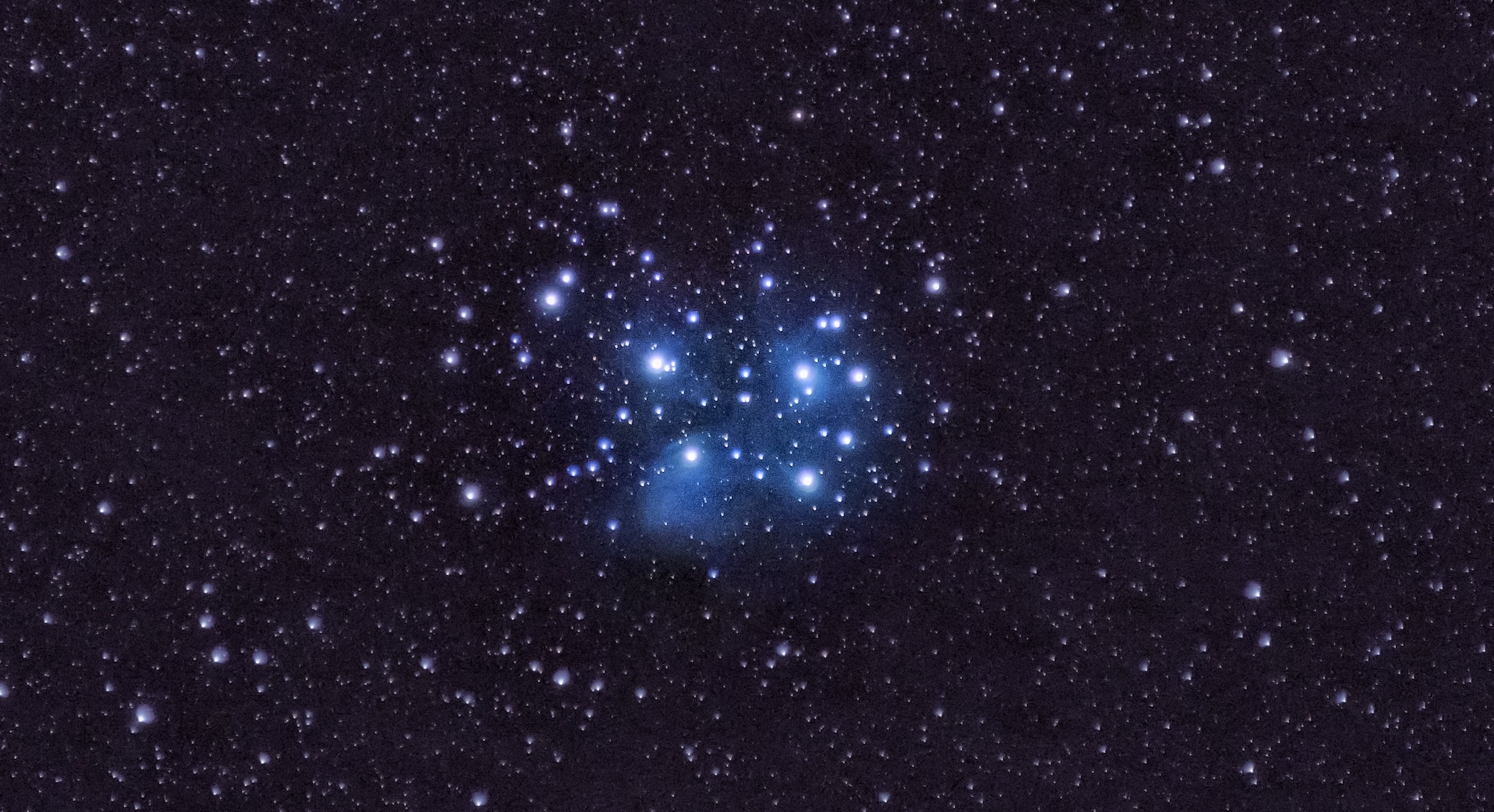Today’s poetic interconnection begins with a deceptively simple question: Why is the sky dark at night?
Ask most people this question and their immediate answer will be this: because the sun has gone down. But what about all the other stars in the sky? Rays from our sun are not the only starlight we receive. With countless other stars in space shining at us, seemingly infinite sources of light, why isn’t our sky eternally bright even when the sun is hidden from our side of the planet?
The dilemma is known as Olbers’ Paradox, and it rests upon a centuries-old assumption held by astronomers that our universe is infinite and static. This assumption originated with Judeo-Christian religion, which teaches that at a specific point in history, God created the cosmos exactly as we experience it, eternal and unchanging. In such a universe, the light of innumerable stars should saturate empty space, overwhelming all darkness.
While the lyricism of this idea is charming, the reality is less so. A wholly illuminated cosmos would be too bright and hot to sustain life. We could not exist to worship a God that created a static universe full of stars.
Fortunately, the assumption that our universe is static is incorrect. Our most current science now theorizes that our universe was born in a specific and spectacular Big Bang and has been expanding ever since. The constant stretching out of space means that distances between stars are always growing. Aeons after our origins, enough stars are now sufficiently old and far from each other that their total light can’t overwhelm the cosmos.
Becoming overwhelmed by light is, of course, a common metaphor in religious mysticisms. The surrendering of individual ego to the infinity of God is often referred to as a great burning, an annihilation in light. Buddhists call this annihilation nirvana. Sufis, Muslim mystics, call it fana. It’s a condition into which monks and dervishes dissolve totally, willingly, and ecstatically.
The idea of dissolving in light also shows up in Sufi cosmology, the Islamic mystical explanation of the origin and nature of our universe. But here, the concept is treated in an opposite way: the divine light that’s so desirable spiritually is considered dangerous physically. Accordingly, space becomes a beneficent veil (hijab) hiding Allah from humankind so that we can live without smoldering in the intensity of God’s radiance.
Consider this ancient Tradition, quoted in a wonderful book by Toshihiko Izutsu called Sufism and Taoism: A Comparative Study of Key Philosophical Concepts:
God hides Himself behind seventy thousand veils of… darkness. If He took away these veils, the fulgurating lights of His face would at once destroy the sight of any creature who dared to look at it.
I read this Islamic Tradition and I wonder, whimsically: Are God’s veils in this passage equivalent to the blackness of space? Can the “fulgurating lights of His face” be likened to all the stars that would overwhelm the sky with their brilliance if the universe wasn’t always expanding?
Once again, has science only recently discovered a truth about reality that spirituality intuited long ago?



Darkness exists because stars like you were created to illuminate, and probe and push around paradoxes.
Love,
Sistah D
You flatter me, Sistah D. Thank you.